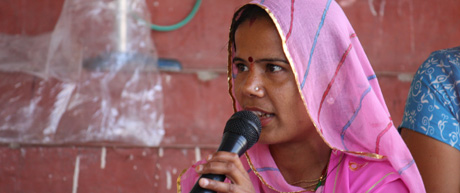Results at a Glance

Making Judicial Systems Work for Women in South Asia
When a woman survivor of domestic violence found her way inside the High Court of West Bengal, India, to demand justice in April of 2004, the Court was in full session. Instead of holding her in contempt of court, presiding Justice Barua listened, explained the judicial process and comforted her. He then asked a lawyer present to take up the woman’s case.
Justice Barua was a member of the Asia Pacific Advisory Forum on Equality Education for Judges.
Originally trained to sensitize the judiciary, Justice Barua became a qualified trainer in a UN Women supported programme that was being carried out by the NGO Sakshi (Sakshi in Hindi means witness). In both Indian and Nepalese courts, this training has led to an increase in such decision-making that gives due attention to women’s rights.
In Nepal, an initiative has resulted in proposed amendments to an existing legislation in Parliament. It has also led to the Supreme Court reviewing and declaring void and invalid a provision that led to discriminatory treatment of sex workers.
One of the review’s major recommendations is to adequately train the police so that they are in a position to investigate organized crime networks that are the driving force behind trafficking of women and children. In Pakistan, UN Women has supported the formation of four provincial committees to boost work on the Convention.